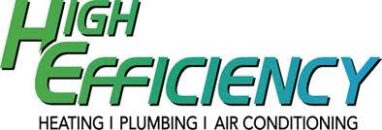Every HVAC system can leak from time to time. However, the concern is that homeowners find out about these leaks well after they start. A leaking system might not be too obvious either, so you need to check for leaks, even if you don’t see the signs. Why?
You might think that refrigerant leaks are not as problematic, but that’s where you’re wrong. In fact, a coolant leak can have adverse effects on both your HVAC system and your family’s health. More specifically, a leak can greatly affect the efficiency of your HVAC system.
But most importantly, inhaling HVAC system leaks can be harmful to your health. It can lead to poor concentration, dizziness, and trouble breathing. Likewise, direct contact also presents a risk of allergic reactions, chemical burns, and frostbite.
So, how can you detect HVAC system leaks? Below are common signs that indicate you have a coolant leak.
High Electricity Bills
Simply, an inefficient electricity bill can severely affect your electricity bills. Leaks mean that your HVAC system isn’t functioning as it should. In case of unit inefficiency, your refrigerant will work harder than usual to meet your cooling needs. And when it uses more power, your electricity bills will spike.
So, if your bills are increasing, it could be because of your HVAC leaks. Compare your bills to look for inconsistencies.
Longer Cooling Cycle
An HVAC system simply works by sucking in the heat in your house, cooling it, and releasing it back. A coolant leak means that your coolant HVAC unit will not cool as effectively, so you will leave it on for longer.
As leaks develop, they cause your air conditioner’s refrigerant levels to deplete. As a result, HVAC units cannot cool your home as well. Besides affecting your comfort, it will make your HVAC work harder, leading to an increase in bills.
Hissing Sound
Hissing sounds coming from your HVAC system is another indicator of leaks. Typically, you will only notice hissing sounds when there are cracks or holes in your AC’s components. Usually, these are present in the coils circulating the refrigerant.
The hissing noise will come directly from your coolant when it runs. But, various reasons can cause cracks and holes in your refrigerant. Unlike a small crack in the coils, a larger hole in the system can produce loud, gurgling sounds.
Frozen Evaporator Coils
Generally, frozen evaporator coils are a tell-tale sign that your HVAC system has leaks. Ice formation is prevalent when air conditioners leak.
Typically, ice will start forming on the coils when the insufficient refrigerant is circulating through them. The coils have trouble absorbing heat, causing the condensation to freeze and take the shape of ice.
Frozen evaporator coils may not seem alarming, but it affects your HAVC system’s cooling process.
Do You See a Leak in Your HVAC System?
Adding more coolants or refrigerants to your HVAC system is not an appropriate way to deal with leaks. You must contact qualified HVAC repair experts to fix the issue.
Contact High Efficiency to get professional help if you want to eliminate the problem.



